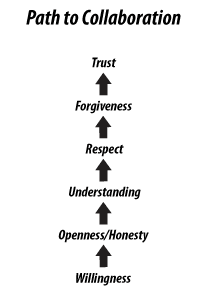In an earlier blog, I wrote about the shifting global paradigm reflecting how we think about and deal with information in our daily lives. With the proliferation of digital technologies, we moved from out-right secrecy in the 70s into greater accessibility by 2000. Eleven years later, we find ourselves in a paradox of these simultaneously existing paradigms. My forecast for their convergence was greater transparency.
From all appearances, social networking seems to be winning the transparency battle with 500 million active Facebook users. However, 70% of those users are “somewhat” to “very concerned” about their privacy when using the site.
What evolved in the face of secrecy and accessibility may be another polarized issue – transparency versus anonymity. Social networking proponents of anonymity (4chan with its 7 million members), support its founder’s belief that “anonymity is authenticity; it allows you to share in a completely unvarnished, unfiltered, raw way […] something that’s extremely valuable.” I cannot disagree with Chris Poole’s view as I encounter people daily who say what they think others want to hear rather than speaking their own mind. Their fears could be anything from losing their jobs, hurting someone’s feelings, being wrong or being publicly criticized. I wonder—if they could be anonymous—would they speak their truth freely. In some cases probably but I suspect old habits die hard no matter what the circumstances. Nonetheless, I am all for creating the environment that allows creativity and free speech to prevail. If 4chan or other sites fulfill this promise, then I am delighted.
On the other hand, transparency (openness and honesty) is the forerunner to building trust—a commodity much valued but under-expressed in our personal and professional lives. As you can see below in the Path to Collaboration, without transparency we cannot build the understanding and respect necessary to navigate our culturally diverse daily experiences.
With bigger fish to fry, like world peace, I embrace transparency in my consulting practice knowing full well it is through trust that we will conquer war—one relationship at a time. Furthermore, I do not see a polarity existing between transparency and anonymity. Both have value, as expressed above, and given our less than perfect human experience, we need to capitalize on all vehicles that allow for truthful expression.
What are your thoughts regarding the need for both transparency and anonymity?





